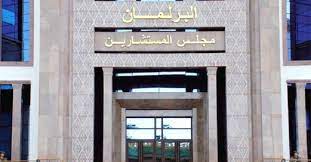House of Councillors: PAM’s team urges the Justice Commission to assess the law proposal stipulating a pardon for cannabis farmers
PAM’s team within the House of Councillors has recently addressed the President of Justice, Human Rights and Legislation Commission, with the purpose of rendering the draft law submitted by the said team on December 11, 2015, stipulating a general pardon for all cannabis farmers in the nearest future.
Within its correspondence, PAM’s team stated that the aforementioned request is compatible with Article 82 of the constitution, especially in light of the current discussions regarding the law N° 21-13 related to the legitimate use of cannabis, as well as the government’s commitment to postpone its deliberations in this regard until the law in question is referred to the parliament for rendering.
The draft law on cannabis falls within PAM’s legislative rights granted by both the constitution and the bylaws, in support of the parliamentary and governmental legislative initiatives, meant to promote the legislation’s output.
The law in question carries several social and humanitarian aspects, for it seeks pardon to a group of citizens enduring harsh conditions in a world of drug production and trafficking, who also find themselves torn between facing imprisonment and the greed of high scale barons.
The law proposal assumes that the farmers subject to the pardon have in fact committed an illegal act that they have been forced into, therefore, justice shall apply to the criminal act given its nature rather than to the farmers themselves. Moreover, this law stipulates that the pardon at hand shall have no impact on the rights of others, which, in case of occurrence, allows for victims to resort to the competitive courts for compensation. The draft law, however, represents no threat to the principles of equality and equity, nor promotes any aspects of discrimination, corruption, favouritism, bribery and abuse of power.
It is noteworthy that the pardon proposal, submitted by PAM’s team back in 2015, shall remain conditional on the law relating to legitimate cannabis cultivation, that is creating an economic alternative that promotes social integration, given that farmers’ activities will be framed by a legal text that preserves their rights.


